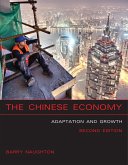Nations and international organizations are increasingly using sanctions as a means to achieve their foreign policy aims. However, sanctions are ineffective if they are executed without a clear strategy responsive to the nature and changing behavior of the target. In The Art of Sanctions, Richard Nephew offers a much-needed practical framework for planning and applying sanctions that focuses not just on the initial sanctions strategy but also, crucially, on how to calibrate along the way and how to decide when sanctions have achieved maximum effectiveness.
Nephew-a leader in the design and implementation of sanctions on Iran-develops guidelines for interpreting targets' responses to sanctions based on two critical factors: pain and resolve. The efficacy of sanctions lies in the application of pain against a target, but targets may have significant resolve to resist, tolerate, or overcome this pain. Understanding the interplay of pain and resolve is central to using sanctions both successfully and humanely. With attention to these two key variables, and to how they change over the course of a sanctions regime, policy makers can pinpoint when diplomatic intervention is likely to succeed or when escalation is necessary. Focusing on lessons learned from sanctions on both Iran and Iraq, Nephew provides policymakers with practical guidance on how to measure and respond to pain and resolve in the service of strong and successful sanctions regimes.
Nephew-a leader in the design and implementation of sanctions on Iran-develops guidelines for interpreting targets' responses to sanctions based on two critical factors: pain and resolve. The efficacy of sanctions lies in the application of pain against a target, but targets may have significant resolve to resist, tolerate, or overcome this pain. Understanding the interplay of pain and resolve is central to using sanctions both successfully and humanely. With attention to these two key variables, and to how they change over the course of a sanctions regime, policy makers can pinpoint when diplomatic intervention is likely to succeed or when escalation is necessary. Focusing on lessons learned from sanctions on both Iran and Iraq, Nephew provides policymakers with practical guidance on how to measure and respond to pain and resolve in the service of strong and successful sanctions regimes.
Dieser Download kann aus rechtlichen Gründen nur mit Rechnungsadresse in A, D ausgeliefert werden.









